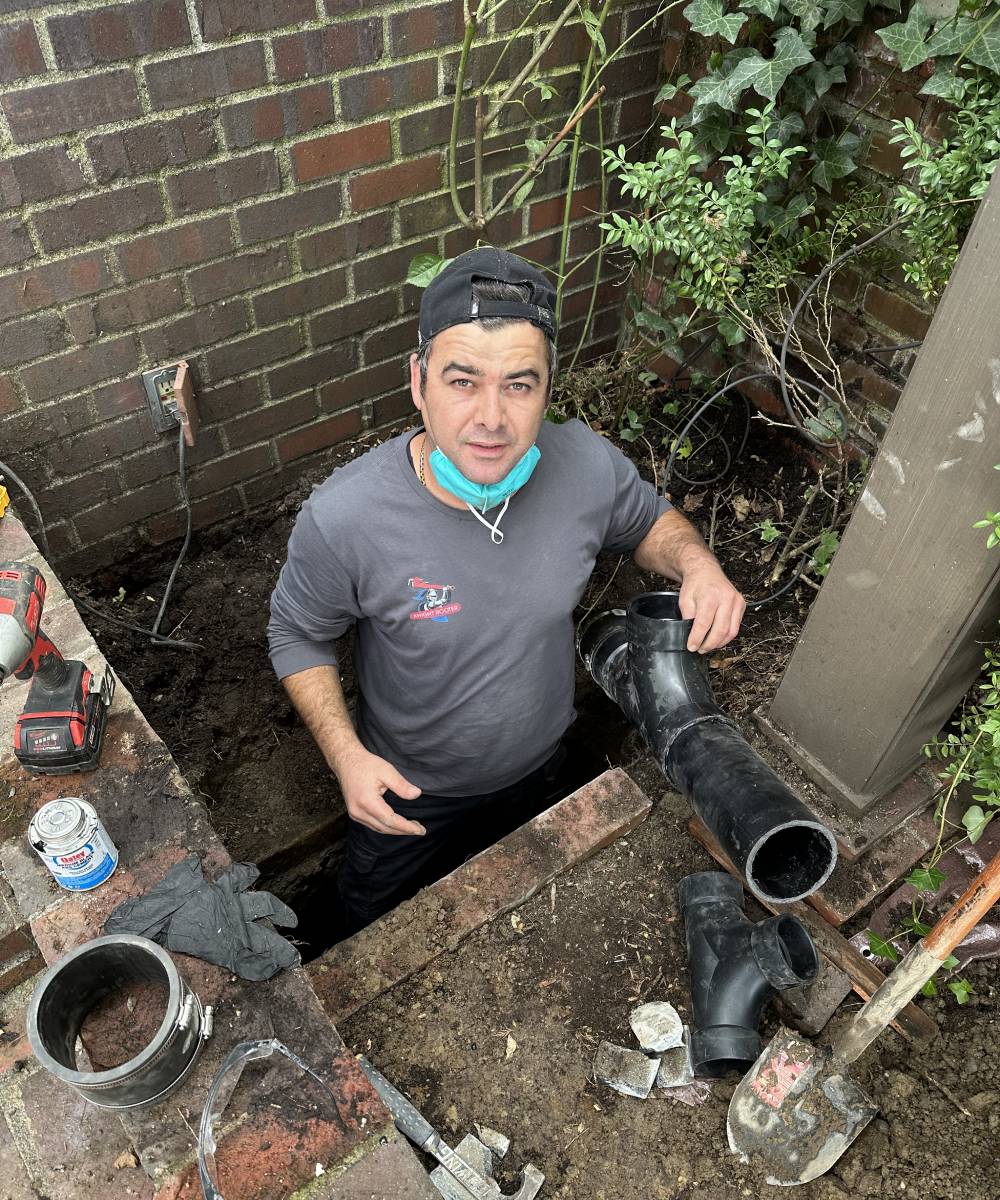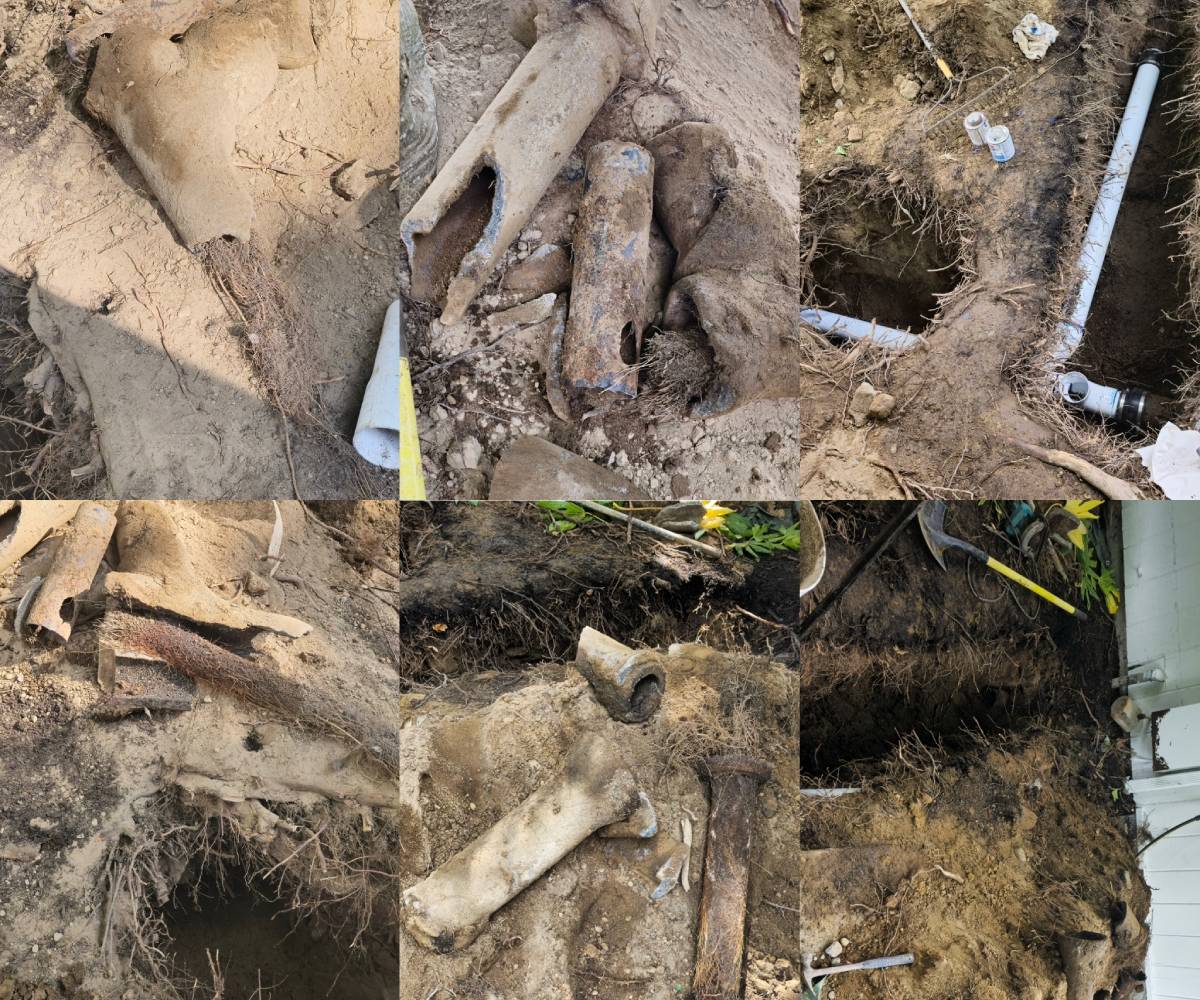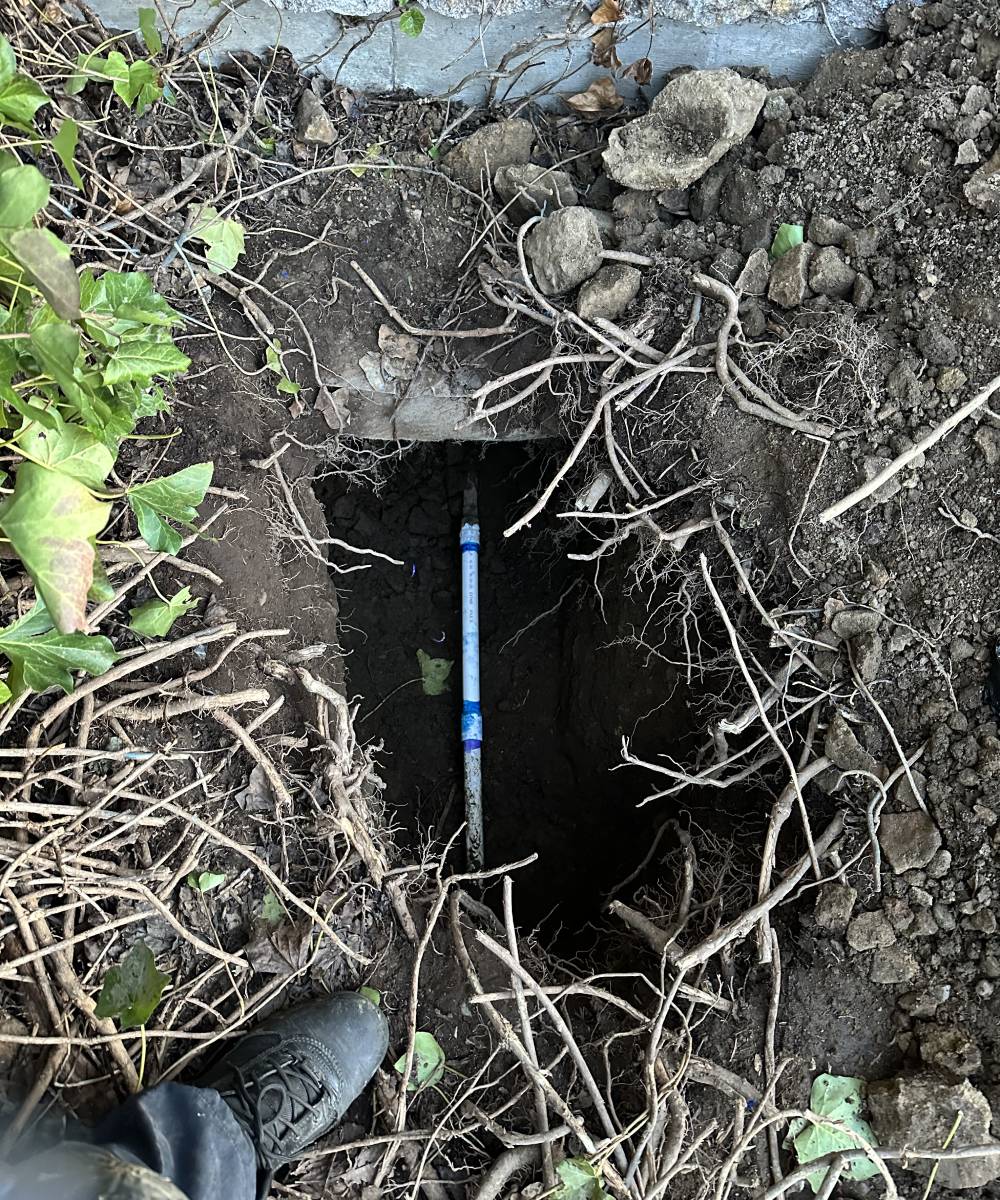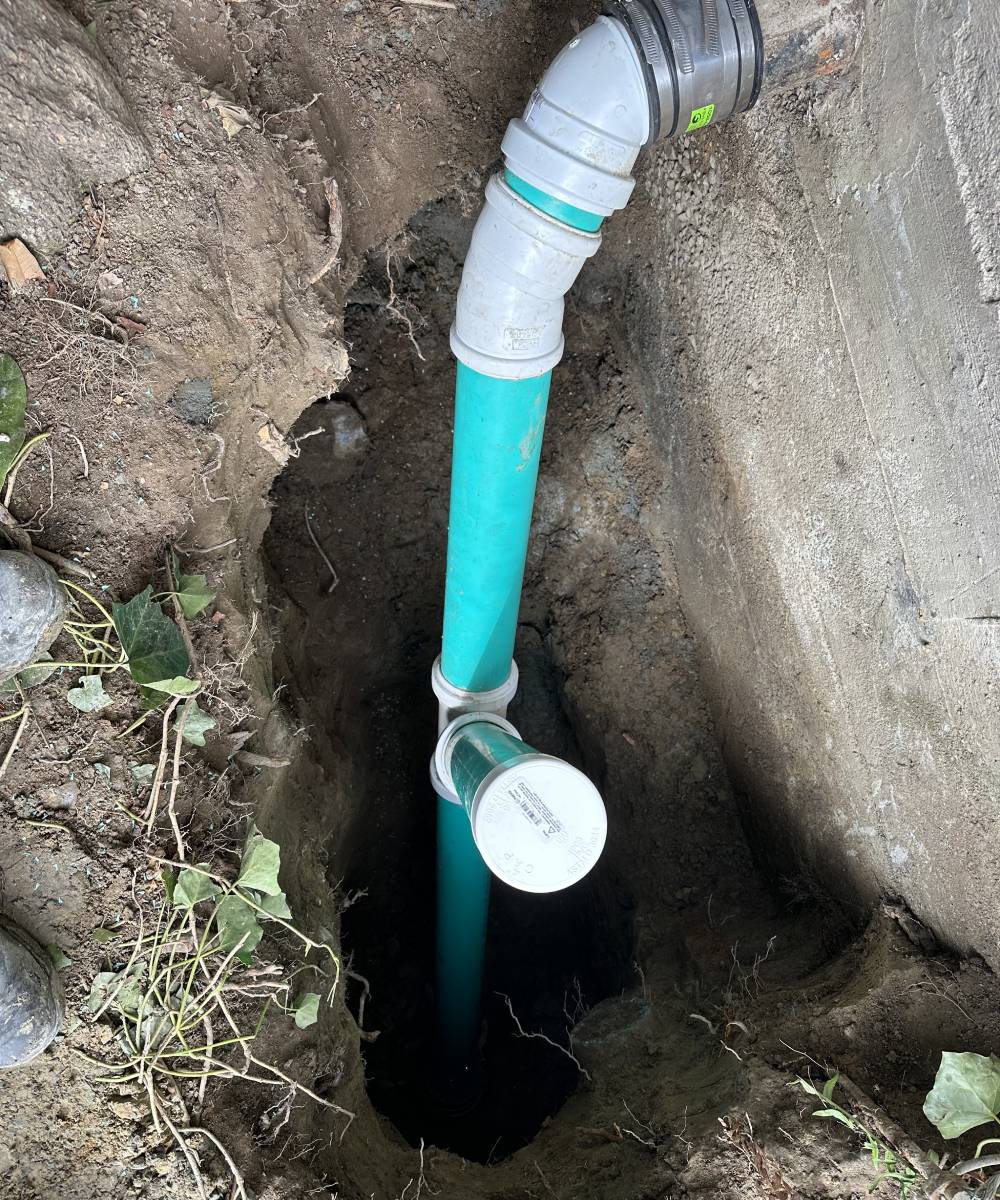Sewer line backups are one of the most common and frustrating plumbing problems for homeowners. Understanding the causes can help prevent them and save you from costly repairs. In this article, we’ll explore the various reasons why sewer lines back up and provide expert tips to prevent these issues.
Why Do Sewer Lines Back Up?
Sewer line backups can be caused by a variety of factors, ranging from everyday blockages to more complex issues with your plumbing system. Some of the most common causes include tree roots, grease buildup, damaged pipes, and improper disposal of waste. Knowing these common causes can help you identify early signs of trouble and take action before it leads to a bigger problem.
1. Tree Roots in Sewer Lines
Tree roots are one of the leading causes of sewer line blockages. As trees grow, their roots naturally seek out moisture and nutrients found in sewer pipes. Once inside, they expand, causing cracks or even complete blockages. Regular inspections and root barriers can be effective solutions to prevent this issue.
2. Blockages and Clogs
Blockages in sewer lines often occur due to the improper disposal of materials. Items like grease, hair, soap scum, food waste, and non-flushable products can accumulate in the pipes, leading to clogs. Over time, these blockages prevent the smooth flow of wastewater, causing backups in your plumbing system.
Tip: Avoid flushing anything other than toilet paper and human waste to keep your sewer lines clear.
3. Damaged or Collapsed Pipes
Older sewer pipes can become damaged or collapse due to wear and tear over time. Factors such as ground shifting, corrosion, or construction work near your property can lead to cracks and leaks in the pipes. When the structural integrity of the pipe is compromised, it can result in sewer line blockages and backups.

4. Heavy Rainfall and Flooding
Heavy rainfall and flooding can overload sewer systems, especially in older infrastructure. When the ground becomes saturated with water, it increases the pressure on sewer pipes, sometimes leading to cracks or leaks. If the system is not equipped to handle the excess water, it can cause the sewer lines to back up into homes and businesses.
5. Aging Sewer Systems
Aging sewer systems are more prone to issues like blockages, cracks, and collapses. Older pipes made of materials like clay or cast iron are especially vulnerable to damage over time. As these materials deteriorate, they can cause significant plumbing issues, including recurring backups.
Tip: Regular maintenance of older sewer lines can help extend their lifespan and prevent major issues.
6. Preventing Sewer Line Backups
Prevention is always better than dealing with a full-blown sewer backup. Here are some practical tips to keep your sewer lines clear:
- Schedule regular sewer line inspections: A professional inspection can help detect issues early on.
- Avoid flushing non-biodegradable items: Items like wipes, feminine hygiene products, and paper towels should never be flushed.
- Use a drain strainer: This can help catch debris before it enters your plumbing system.
For expert Sewer & Drain Cleaning Services, contact Knight Rooter. Our experienced team can help you prevent costly backups and keep your plumbing system in top condition.”
Conclusion
Understanding why sewer lines back up and how to prevent them can save you time, money, and stress. From tree roots to damaged pipes and clogs, there are several factors that can cause your sewer system to fail. By taking preventative measures and seeking professional help from Knight Rooter, you can protect your home from unwanted plumbing issues.
FAQ
1: What are the most common causes of sewer line backups?
Common causes include blockages from grease or debris, tree root intrusion, damaged pipes, and heavy rainfall that overwhelms the sewer system.
2: How can I prevent tree roots from invading my sewer line?
Regular maintenance, root barriers, and proper landscaping practices can help prevent tree roots from infiltrating your sewer pipes.
When should I call a professional for a sewer line inspection?
If you notice slow drains, unpleasant odors, or repeated sewer backups, it’s best to contact a professional plumber for a thorough inspection.
For all your sewer line needs, including inspection, repair, and cleaning, trust the experts at Knight Rooter to get the job done right.





No comment yet, add your voice below!